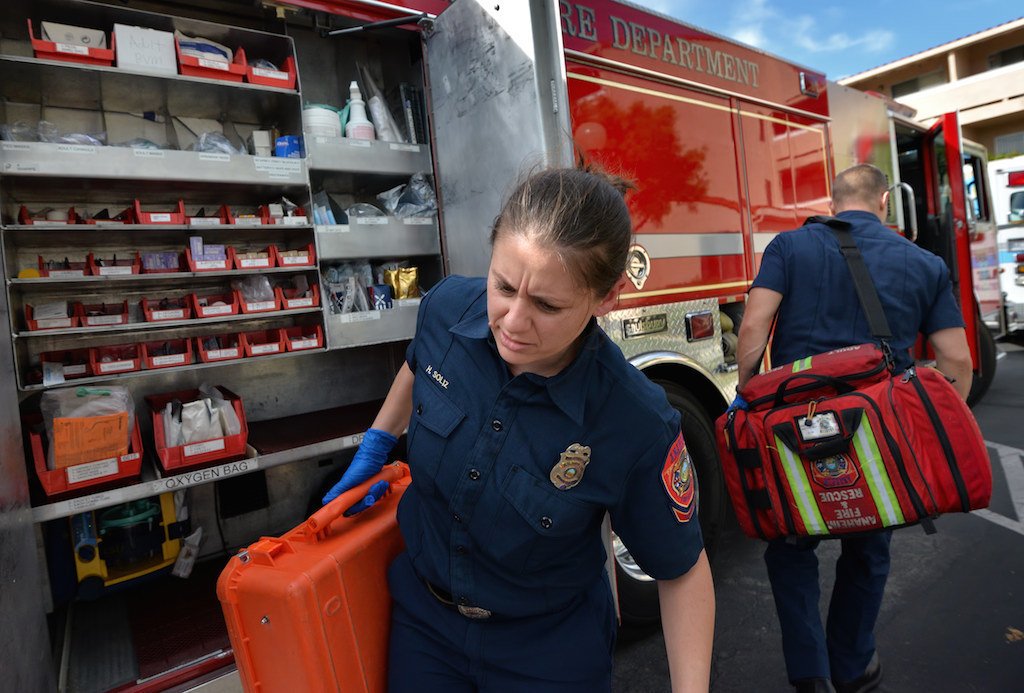Extra Duty and Overtime for Fire Departments and EMS Personnel
When discussing extra/off-duty work in the public safety community, most think of work conducted by law enforcement agencies and off-duty police officers. However, for large scale events, such as public demonstrations, concerts, parades, fairs/festivals, etc. the presence of fire and EMS personnel is critical. This practice is also becoming more prevalent as business communities plan large events and hire more off-duty public safety personnel.
The presence of fire and EMS personnel at events such as the Route 91 Harvest Festival mass shooting in Las Vegas (October 2017) and the Boston Marathon bombing (April 2012) highlights the need for Fire, EMS, and law enforcement personnel as a part of a large-scale event response. Fire and EMS are there to provide triage and initial care. Anytime there is a large gathering of people, there is an increased likelihood of medical events occurring. There is a duty to have medical personnel on standby for these types of events.
However, just as the law enforcement community is dealing with staffing issues, so are our fire and EMS agencies.
Filling positions at special events is not as easy as it was in the past.
In addition, most fire and EMS agencies require their personnel to work 24-hour shifts and have required minimum constant staffing. Constant staffing is not usually a requirement for most law enforcement agencies. This often requires Fire and EMS personnel to work mandatory overtime to cover when personnel take leave. It also means that there is not enough on duty staffing to cover large scale events. Therefore, staff is required to work overtime, or be hired in an off-duty capacity by organizers to work the event.
That being said, due to their 24-hour shift schedule, many fire and EMS personnel have multiple days off in a row (based on a 5/6, 3/4, 1/2 or 48/96 schedules). Tapping into these available personnel can enhance the response to fill jobs and allow for an increased level of service to the community. It also allows agencies to better address issues surrounding staffing fatigue, which also plays a role in the assignment of extra duty and special event details.
As safety and security concerns continue to grow at large scale events, law enforcement, fire, and EMS personnel have increased their collaborative approach to the planning and response to large scale events and incidents. Across the country, there has been an increase in the use of Tactical Emergency Medical Support (TEMS), which staffs paramedics on local police agency Special Weapons and Tactics (SWAT) teams. These TEMS medics train and respond with local SWAT teams and provide an immediate resource for traumas that occur during SWAT operations. Additionally, the use of the Rescue Task Force (RTF) has also grown nationally as a response to mass casualty events.
RTF allows for fire and EMS personnel to safely respond in coordination with law enforcement resources to a mass casualty event even as the event is ongoing. As law enforcement establishes hot zones and warm zones, fire and EMS personnel don PPE, including ballistic vests, to quickly triage and evacuate critical patients during a mass casualty event increasing the likelihood of survival for victims.
The increased use of TEMS and RTF as a collaborative approach between law enforcement and fire/EMS personnel creates strong working relationships as well as effective special event planning.
At PowerDetails, we recognize the unique needs of our first responders and the needs of Fire and EMS personnel. Whether your agency is staffing a special event, or filling overtime vacancies, our platform can help streamline your staffing process.
To learn more about how PowerDetails help you address accountability issues surrounding extra duty employment or to get a live personalized demonstration, please contact us.
You can also watch an online demo, at any time, by clicking here.



